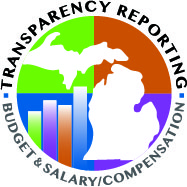April 2023
- Posted by superintendent
- Categories Superintendent's Corner
- Date May 1, 2023
This month’s superintendent’s corner was written by our special education teacher, Mr. Louis Justman.
On Tuesday May 2 voters in Burt Township and across the rest of Alger and Marquette counties will see a Special Education Millage on the ballot from the region’s Intermediate school district (ISD) Marquette-Alger Regional Education Service Agency (MARESA).

Many may not realize just how many students are encompassed by the term “Special Education.” The U.S. Department of Education’s Individuals with Disabilities Education Act (IDEA) requires that students with any of these 13 categories of impairment are eligible for special education services:
Autism Spectrum Disorder
Deaf-Blindness
Deafness
Emotional Disturbance
Hearing Impairment
Intellectual Disability
Multiple Disabilities
Orthopedic Impairment
Specific Learning Disability
Speech or Language Impairment
Traumatic Brain Injury
Visual Impairment, including Blindness
Other Health Impairment
IDEA ensures that any public education 3+ year old student who is negatively affected by their impairment in their schooling is still provided a free appropriate public education. Regardless of a student’s disabilities and unique needs, IDEA ensures that they are able to work to be prepared for further education, employment, and independent living.
When you zoom out and look at that large of a list and mission, it is easy to understand how a district’s population of students receiving special education services can climb. Here are some more statistics to consider:
More than 7 million students attend special education in the USA.
One in six children in the US has a form of developmental delay.
An equal number of boys and girls have multiple disabilities.
15% of all public school students require special education.
The number of students with learning disabilities who spent time in regular classrooms doubled from 1989 to 2017.
19.4% of students applying for college report having a disability.
19% of students receiving special education have speech or language impairments.
9.4% of children in the US have ADHD.
The federal government spends about $12.3 billion on special education for students aged 3–12.
Low-income families have about twice or more than twice the identification rate with emotional disability or intellectual disability as compared to non-low-income children.
MARESA’s special education services offer a wide variety of programs and services to students, staff and families, which are often expensive and cumbersome for a district to fund on their own – especially a small isolated district like ours in Grand Marais.
In my time in Grand Marais I have seen the number of students receiving services for special education reside around 25% (right about the rate you would expect based on the above statistics). As the students come and go, they bring their unique needs with them. One year, the district may have a need for an occupational therapist, and the next we might not. If a family moves to town or moves away, the carousel of services required moves along with them.
In my time at Burt Township School District, I have seen the district receive help in the service areas of Assessment and Diagnostics, Assistive Technology, Autism Spectrum Disorder, Hearing and Visual Impairment, Occupational Therapy, Speech and Language Therapy, Social Work, understanding / applying Michigan and United States Policies, and transition services and planning for secondary students with disabilities.
MARESA staff also work with local districts to identify and provide staff professional development needs. Considerable effort and expense is devoted to planning, organizing, and supporting staff development opportunities for teachers, administrators, aides, and parents to acquire new skills and strategies that facilitate the success of students with disabilities and the growth of staff.
Currently there is a special education funding shortage of $5 million each year across Marquette and Alger counties. Although school districts are mandated to provide special education services, state and federal funds fall short in terms of covering the costs. That means school districts are forced to use their general operating funds to bridge the gap.
MARESA is the only entity that can legally bring this millage to the ballot on behalf of the school districts in our area. If the millage is approved, none of the funding will stay at Marquette-Alger RESA. The entire $4.8 million collected each year will flow through to the local school districts, nearly eliminating that special education funding shortfall in the region. Each local school district, including Burt Township School District, would make their own decisions on how to reallocate their saved general fund dollars if the millage passes.
If approved, the Special Education Millage Proposal would offer support in the form of an additional 1.5 mills over the next 20 years.
To calculate the impact of the millage on your tax bill, multiply the assessed value of your home by 0.00150. The assessed value of your home is a maximum of one-half its market value. For example, a home with an appraised market value of $200,000 would have an assessed value of $100,000, resulting in a cost to the homeowner of $150/year (Or 42¢ a day).

Special education funds may only be used for costs identified as eligible under IDEA and the Michigan Administrative Rules for Special Education. IDEA has safeguards in place to prevent cutting resources to student populations that are most vulnerable.
The distribution of millage revenue is determined by a distribution formula that is part of the Marquette-Alger RESA’s Special Education Plan for the delivery of programs and services. The revenue that will be returned to the local districts is based upon the cost to educate the number of special education students residing in the district.

You can find more information about the proposed Special Education Millage on the MARESA website . The polls will be open from 7am until 8 pm on Tuesday May 2, 2023 and Absentee ballots can be cast through Election Day.

Sources:
https://www.maresa.org/programs-services/special-education/
https://behavioralinspiredgrowth.com/special-ed-resources/categories-disability-idea-law/
https://sites.ed.gov/idea/regs/b/a/300.8

